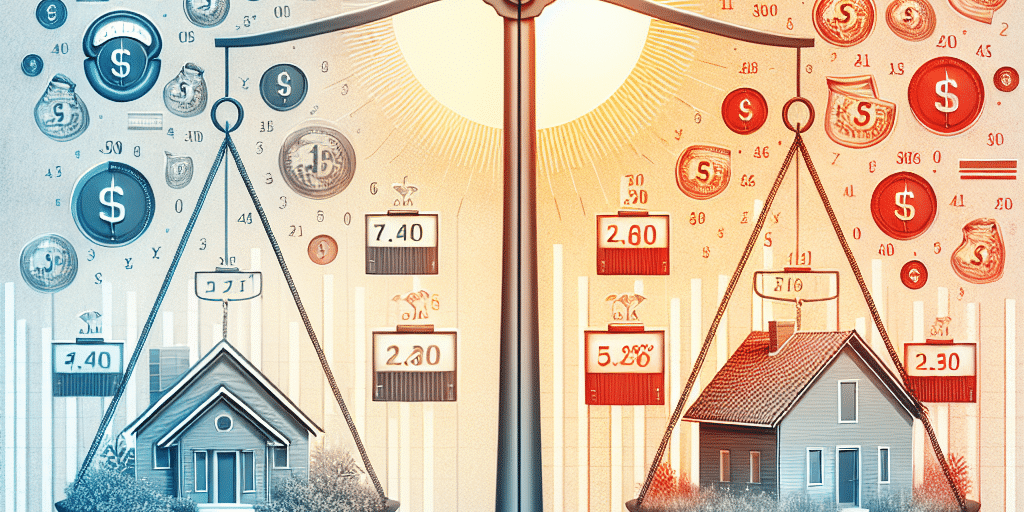Title: Understanding Your Options: The Pros and Cons of Fixed vs. Variable Rate Mortgages
When it comes to choosing a mortgage, one of the most crucial decisions you’ll face is whether to opt for a fixed or variable rate. Each type offers distinct advantages and disadvantages, and your choice can significantly impact your financial situation and stability. This article aims to break down the pros and cons of fixed and variable rate mortgages to help you make an informed decision.
Fixed Rate Mortgages
Pros:
Predictability:
- One of the most significant benefits of a fixed rate mortgage is the predictability it provides. With a fixed interest rate, your monthly mortgage payments remain constant throughout the loan term, making budgeting more straightforward.
Protection Against Rate Increases:
- Fixed rate mortgages shield borrowers from potential interest rate hikes. This stability can be especially advantageous in a rising interest rate environment, as your rate is locked in and won’t change.
- Long-Term Planning:
- Knowing exactly what you will pay each month allows for better long-term financial planning. For homeowners who expect to stay put for many years, fixed-rate mortgages offer reliability and peace of mind.
Cons:
Higher Initial Rates:
- In exchange for stability, fixed rate mortgages typically start with higher interest rates than variable rate mortgages. This can result in higher monthly payments at the outset.
Less Flexibility:
- Fixed rate mortgages often come with prepayment penalties during the initial period, making it more expensive to pay off the loan early or refinance if interest rates drop.
- Rate Lock Risk:
- If mortgage rates fall, those locked into a fixed rate may pay more than necessary unless they refinance, which could involve additional costs and effort.
Variable Rate Mortgages
Pros:
Lower Initial Interest Rates:
- Variable rate mortgages often start with lower interest rates compared to fixed rate options, potentially making them more affordable in the short term.
Potential for Decreased Rates:
- If market interest rates decrease, borrowers with variable rate mortgages can benefit from reduced monthly payments without needing to refinance.
- Interest Savings:
- Over the loan’s life, borrowers might save money if interest rates remain stable or decrease, due to the initially lower interest rates.
Cons:
Uncertainty and Risk:
- The primary drawback of variable rate mortgages is the uncertainty. Monthly payments can fluctuate based on changes in interest rates, which can complicate budgeting and financial planning.
Rate Increase Exposure:
- If interest rates rise, borrowers could face significantly higher payments, impacting overall affordability and possibly leading to financial strain.
- Potential for Higher Long-Term Costs:
- While variable rate mortgages can start with lower rates, the total interest paid over the loan term can exceed that of a fixed rate if rates rise significantly.
Conclusion
When deciding between a fixed and variable rate mortgage, consider your financial situation, risk tolerance, and future plans. Fixed rate mortgages offer stability and protection against rate increases, making them ideal for long-term homeowners focused on predictable expenses. On the other hand, variable rate mortgages can provide short-term savings and the potential for lower payments if rates decrease.
Ultimately, the best choice depends on individual circumstances. Consulting with a financial advisor or mortgage professional can also provide valuable insights tailored to your unique situation, ensuring that you make the decision that aligns with your financial goals.







